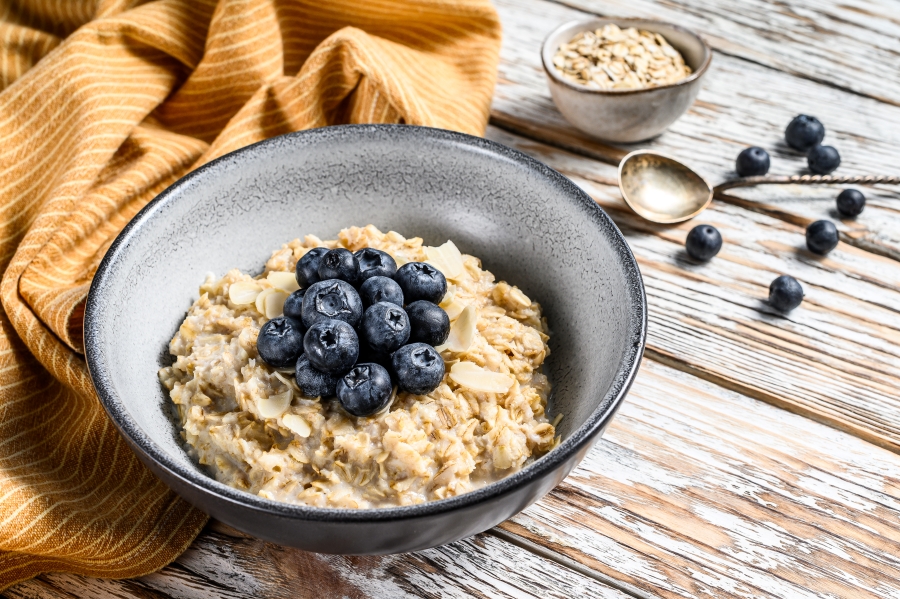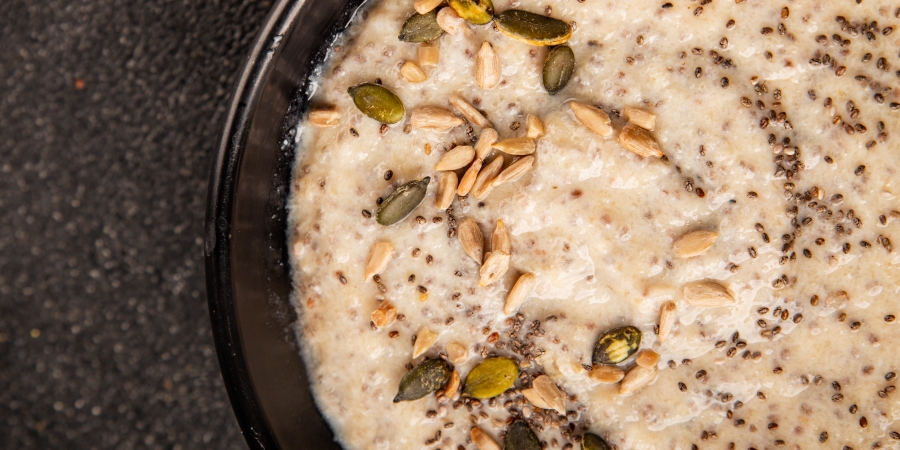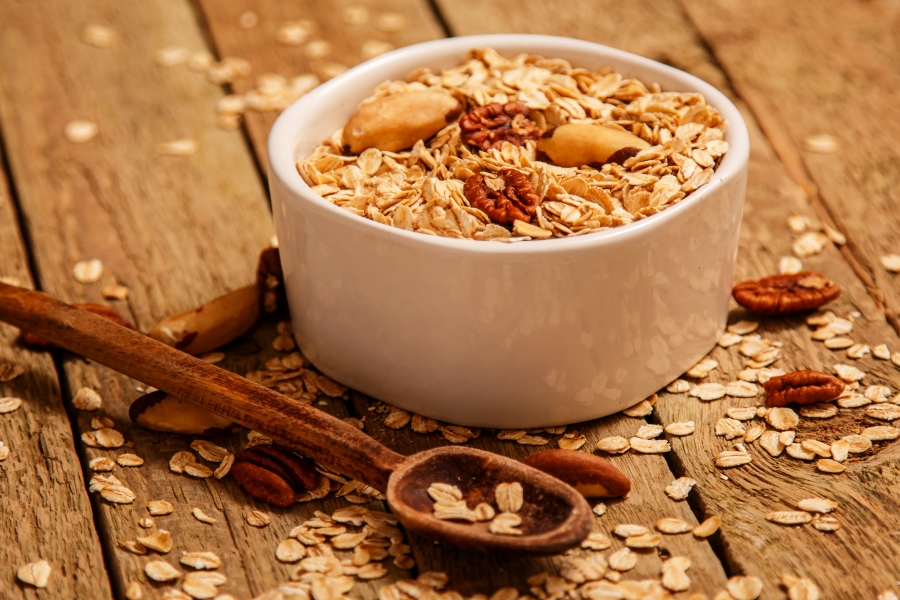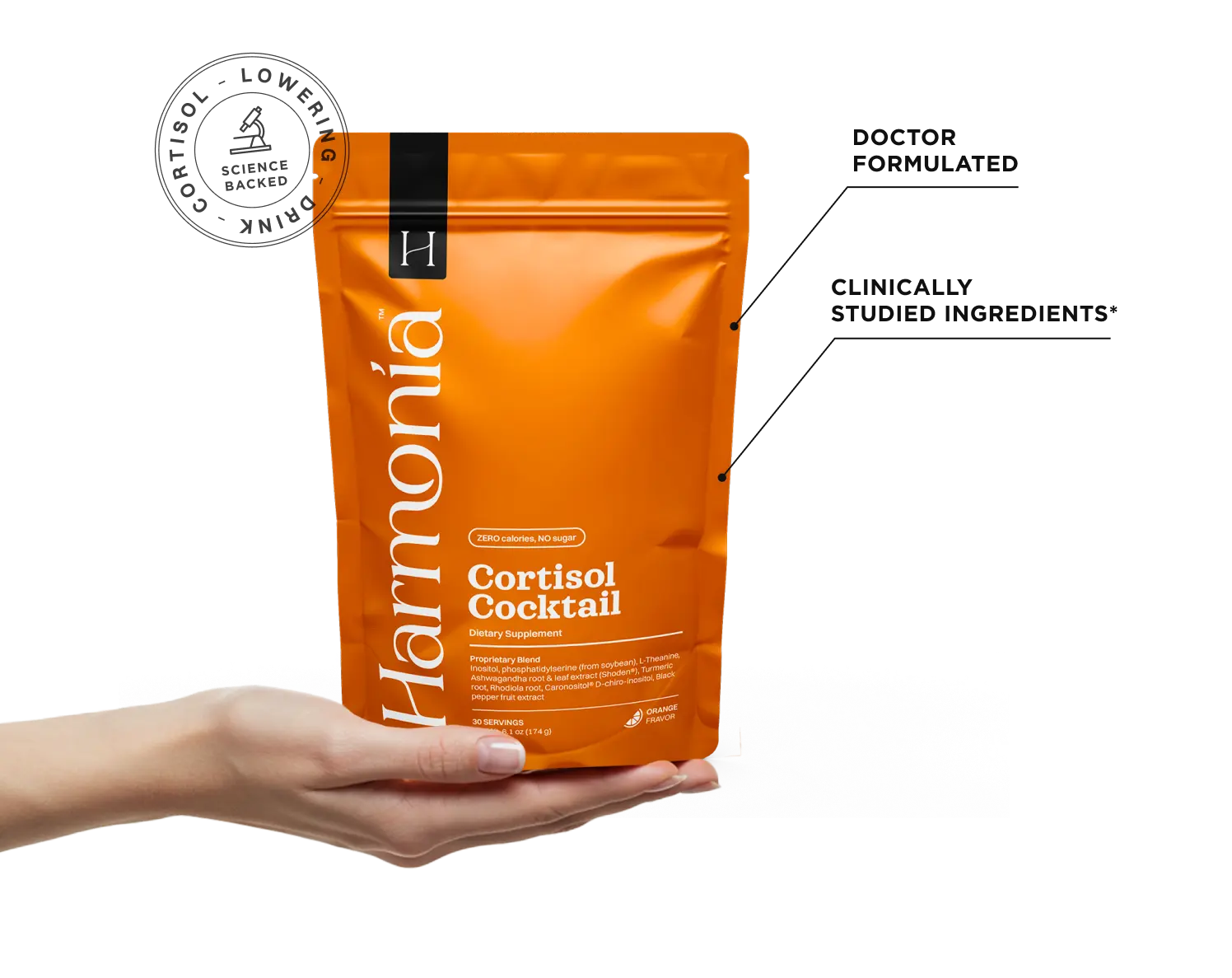Oatmeal has long been considered one of the healthiest breakfast staples. Packed with fiber, vitamins, and minerals, it’s linked to better digestion, improved heart health, and steady energy.
In recent years, interest in hormone health and stress has sparked conversations about cortisol - the body’s main stress hormone - and how diet may influence it. This has led to a growing curiosity about whether oatmeal could affect cortisol levels.
This article explores what oatmeal does in the body, whether it influences cortisol, the benefits and drawbacks of daily consumption, and how oats fit into a balanced lifestyle that supports overall health and stress management.
What Oats Do in the Body
Oats are a nutritional powerhouse. They are rich in soluble fiber, particularly beta-glucans, which support cholesterol reduction and promote stable blood sugar levels. The complex carbohydrates in oats provide a steady release of energy, reducing the risk of mid-morning crashes.
Beyond energy, oats supply manganese, magnesium, iron, zinc, and B vitamins, all of which play roles in metabolism and nervous system function. The fiber also nourishes the gut microbiome, supporting digestion and immune health.
In short, oats contribute to satiety, energy balance, and long-term wellness, making them an ideal foundation for a nutrient-dense diet.
Oatmeal and Cortisol: What the Science Says

Cortisol follows a daily rhythm. It peaks in the morning to help you wake up and gradually declines by evening. Levels also rise in response to physical or emotional stress, as well as when blood sugar dips.
Carbohydrate-rich foods like oatmeal can actually help restore balance. After exercise, carbohydrates replenish glycogen and send calming signals to the body that reduce the need for stress hormone output. Stable blood sugar from slow-digesting oats further helps prevent the sudden spikes and crashes that often drive cortisol higher.
There is no evidence that eating oatmeal raises cortisol. On the contrary, oats may support steadier energy and help minimize stress-related hormone fluctuations over the course of the day.
Oatmeal Benefits for Men and Women
Oatmeal offers a variety of benefits that support both men and women, making it a versatile food for nearly every lifestyle.
Supports heart and metabolic health
Oats are renowned for their cholesterol-lowering effects thanks to beta-glucans, which help reduce LDL cholesterol from the bloodstream. They also improve insulin sensitivity, supporting healthy blood sugar levels.
Promotes steady energy and focus
The slow-digesting carbohydrates in oats release glucose gradually, helping to fuel both the brain and muscles throughout the day. Many people report fewer energy crashes and better focus after eating oatmeal for breakfast.
Aids weight management
Oatmeal is naturally filling, which can reduce the urge to snack between meals. The combination of fiber and complex carbs keeps hunger in check and supports long-term weight goals.
Supports hormonal balance
For men, steady blood sugar helps reduce cortisol spikes, which can protect testosterone levels and support energy for workouts and recovery. For women, nutrients like magnesium and B vitamins in oats help regulate mood and energy, especially during hormonal shifts such as PMS or menopause.
Boosts skin and digestive health
Oats contain antioxidants, including avenanthramides, which have anti-inflammatory properties and may support skin health. Meanwhile, their prebiotic fiber improves digestion and gut microbiome balance.
Oatmeal is not just a convenient breakfast; it’s a food that nourishes both the body and mind, offering benefits for energy, stress resilience, and long-term wellness.
Side Effects of Eating Oatmeal Every Day

While oatmeal is widely regarded as healthy, eating it daily may not suit everyone.
- Digestive discomfort: The high fiber content can lead to bloating or gas, especially if your body isn’t accustomed to large amounts of fiber.
- Phytic acid: Oats contain compounds that bind to minerals like iron and zinc, which may slightly reduce absorption if oats dominate the diet.
- Diet variety: Relying too heavily on oats can crowd out other important nutrient sources.
- Processed versions: Instant flavored oats with added sugars may cause blood sugar spikes and reduce the health benefits.
Choosing whole, less processed oats such as steel-cut or rolled varieties helps maximize benefits while minimizing drawbacks.
Eating Oatmeal for 30 Days: What to Expect
A month of consistent oatmeal consumption often brings noticeable changes. Digestion tends to improve as fiber supports regularity. Cholesterol levels may decrease thanks to the action of beta-glucans. Many people report more stable energy throughout the day, along with fewer cravings between meals.
Weight management may also become easier since oats promote fullness and help control appetite. Skin improvements are sometimes noted, likely due to better blood sugar control and reduced systemic inflammation.
Potential downsides include digestive adjustments during the first week or two and taste fatigue if oats are prepared the same way every day. Balancing oatmeal with proteins, healthy fats, fruits, and spices keeps meals interesting and nutritionally complete.
Drinking Oatmeal Water and New Oatmeal Trends
Oatmeal has evolved far beyond the traditional breakfast bowl. One trend gaining attention is oatmeal water, a beverage made by soaking oats and straining the liquid.
It offers hydration along with some soluble fiber, making it a light option for digestion and satiety. Some people use it as a supportive drink for weight management or as a refreshing alternative to sugary beverages.
At the same time, innovative products have entered the market. Ready-to-drink oatmeal shakes cater to busy lifestyles, fortified blends add protein or probiotics, and oat-based dairy alternatives like oat milk have become mainstream. These new options highlight the versatility of oats and their place in modern diets.
Oatmeal and Stress Management in Context
Although oatmeal supports steady blood sugar and energy, it is not a direct treatment for high cortisol. Instead, it should be viewed as part of a broader lifestyle that promotes resilience to stress. Balanced meals, consistent exercise, adequate sleep, and mindful practices all contribute to healthy cortisol rhythms.
Including oatmeal as a staple can complement these habits by reducing energy crashes that otherwise trigger stress responses. It is a helpful component of a cortisol-friendly diet but works best alongside a varied and balanced approach to health.
Conclusion

Oatmeal delivers a wide range of benefits, from improved digestion and heart health to more stable energy and appetite control. Despite occasional claims, it does not raise cortisol levels. Instead, its ability to promote steady blood sugar and satiety may actually support calmer, more balanced hormone patterns.
Daily oatmeal can be a smart dietary choice when paired with variety and moderation. Whether enjoyed as a warming breakfast, a light drink like oatmeal water, or one of the many new oat-based products, oats remain a simple way to nourish the body while supporting overall wellness.
For those who want more targeted support for stress and cortisol balance, Harmonia offers a smart solution. Formulated with clinically studied ingredients like Ashwagandha, L-Theanine, and Myo-Inositol, it’s designed to help regulate cortisol, improve sleep quality, and restore hormonal balance.
Together, a diet that includes nutrient-dense foods like oatmeal and the advanced support of Harmonia can create a powerful foundation for both energy and stress resilience.
References
- Ahmad, M., Dar, Z. A., & Habib, M. (2014). A review on oat (Avena sativa L.) as a dual-purpose crop. Scientific Research and Essays, 9(4), 52-59. Link.
- Shehzad, A., Rabail, R., Munir, S., Jan, H., Fernández-Lázaro, D., & Aadil, R. M. (2023). Impact of oats on appetite hormones and body weight management: a review. Current Nutrition Reports, 12(1), 66-82. Link.
- Varma, P., Bhankharia, H., & Bhatia, S. (2016). Oats: A multi-functional grain. Journal of Clinical and Preventive Cardiology, 5(1), 9-17. Link.







